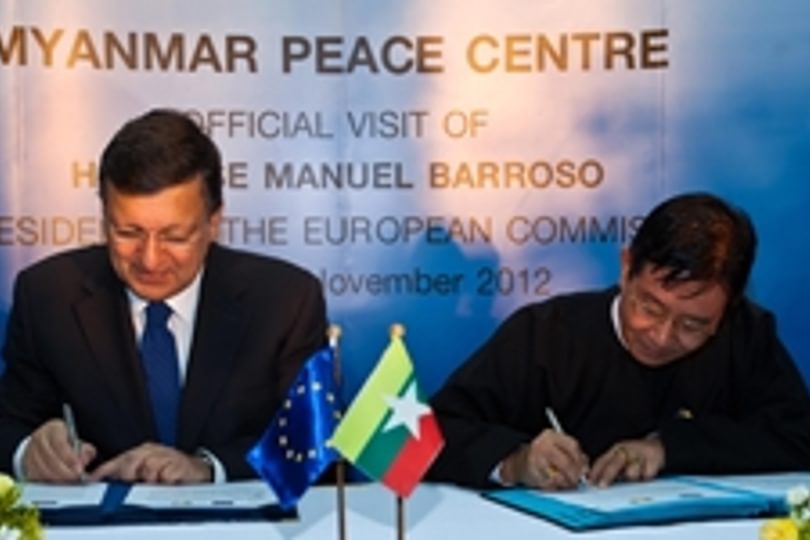
The international community will need to be patient, supportive and vigilant as a durable peace is forged in Myanmar, writes Dr David Rodin.
Myanmar is going through a political transition that is unlike anything else happening in the world. It is neither the result of a spontaneous domestic uprising, nor of direct foreign intervention. A military regime almost entirely closed to the world for two decades has begun the complex process of opening itself up to those ethnic and religious minorities who have historically been excluded, persecuted or marginalised.
This has all happened with astonishing speed since government reforms began in 2011. Observing the changes, the international community finds itself wondering whether this is a genuine and lasting transformation, or just window dressing. As recent attacks on the minority communities demonstrate, there is still a long way to go in ensuring peace and security for all.
Closely linked to Myanmar’s transition is an organisation which is also unique. The Myanmar Peace Centre (MPC) was established just seven months ago by decree of President Thein Sein, with a mandate of directly supporting the government in its torturous negotiations with the many armed groups still operating in the country. It is of the government, but not in the government.
The MPC has its eyes wide open to the magnitude of the task. The organisation has a sophisticated grasp of the situation, and appreciates that ceasefires are simply a first step towards a durable peace that requires a genuine political settlement. To achieve the latter, Myanmar will need to make progress simultaneously on social and political grievances, while providing prosperity, security, and the rule of law to its people. This is a daunting challenge, to say the least.
Out of necessity, however, the MPC has focused on ceasefires to stop the violence in the short term. As part of the World Economic Forum on East Asia, taking place in Myanmar, 15 of the Forum's Young Global Leaders had the opportunity to spend a day with the MPC. We were impressed by their openness and humility. We were also very aware that in the political climate of just 18 months ago, such a meeting could not have happened.
Nonetheless, many within the country remain uncertain about the role the MPC plays, given its ambiguous relationship to the government. Although largely comprised of former dissidents and exiles, the MPC does not include representation by certain key ethnic groups, and comprises only one woman.
Received wisdom holds that successful transitions need a comprehensive strategy that is bottom up and inclusive. This has not been the approach in Myanmar so far. The unique circumstances here have resulted from a process of transition largely driven by the country’s elite. There is no doubt that this process has yielded promising results, with 13 ceasefires concluded in the past nine months.
Yet the question remains: will these ceasefires last? At some point, the top-down driven peace and reconciliation process will have to reach out to broader Myanmar society, to secure buy-in from the people and legitimacy. When is the right point to make that transition, and how precisely will it be done? These are still unanswered questions.
For the international community, the situation in Myanmar poses fundamental questions about how best to support the transition process, while also making sure the regime itself is accountable for creating a just and durable peace. International partners will need to be patient, supportive and vigilant.
The experience of the MPC is a microcosm of how hopeful the situation in Myanmar is right now and of the dilemmas it, and we, must confront.
- David Rodin is also a World Economic Forum Young Global leader. The article was co-written with Catherine E. de Vries, Professor of European Politics at the University of Oxford, following their recent visit to the Myanmar Peace Centre.
- This blog first appeared in the blog section of the World Economic Forum website
- Photo shows EU President Jose Manuel Barroso with U Aung Min, Minister of the President's Office of Myanmar. © EU, 2012
This opinion piece reflects the views of the author, and does not necessarily reflect the position of the Oxford Martin School or the University of Oxford. Any errors or omissions are those of the author.
